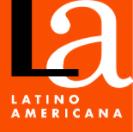A Sexuality as a battlefield in Twitter: religious groups, feminist movement and LGBT in the struggle for sexual rights
Keywords:
cyberactivism, sexual rights, neopentecostalismAbstract
Since its structuring in Web 2.0, digital communication technologies have developed and spread an algorithmic agency that enhances and manages digital socialities in an increasingly broad and disseminated way to countless social relations and, among them, political struggles. The purpose of this article is to present some ideas about how digital platforms provide a framework for political struggles. We will examine the strategies put into action, in two specific moments of political conflict in Brazil, in the clashes between religious groups and feminist and LGBT movements on the Internet. These struggles have involved actions in the legislative and, to a certain extent, in the judiciary, articulating the online and offline dimensions, and focusing on topics related to body, sexuality and religiosity.
References
Anderson, Benedict (1983). Imagined communities: reflections on the origin and spread of nationalism. New York, Verso.
Araujo, Rafael de Paula Aguiar, Penteado Claudio Luis de Camargo e SantosMarcelo Burgos Pimentel dos (2011). “Informação e contra-informação: o papel dos blogs no debate político das eleições presidenciais de 2010”, IV Congresso Latino Americano de Opinião Pública da WAPOR. Belo Horizonte – Brasil.
Bolaño, César Ricardo Siqueira e Britoos, Valério Cruz (2010). “Blogosfera, espaço público e campo jornalístico: o caso das eleições presidenciais brasileiras de 2006”, Intercom – Revista Brasileira de Ciências da Comunicação. São Paulo, v.33, n.1, p. 237-256, jan./jun.
Boyd, Danah, Golder, Scott and Lotan, Gilad (2010). “Tweet, Tweet, Retweet: Conversational Aspects of Retweeting on Twitter,” HICSS-43. IEEE: Kauai, HI, January 6.
Bourdieu, Pierre (1998). “Descrever e Prescrever” e “Ritos de instituição” em A Economia das Trocas Lingüísticas. SP, Edusp.
Durkheim, Emile(1989). As formas elementares da vida religiosa: o sistema totêmico na Austrália. São Paulo, Paulinas.
Luna, Naara (2010). “Aborto e células-tronco embrionárias na campanha da fraternidade: ciência e ética no ensino da Igreja”, Revista Brasilera Ciencias Sociais [online]. vol.25, n.74 [cited 2013-09-16], pp. 91-105.
Miller, Daniel; Slater, Don (2004). “Etnografia on e off-line: cibercafés em Trinidad”, Horizontes Antropológicos. Porto Alegre: v. 1, ano 10, n. 21, p. 41-65, jan./jun.
Miller, Daniel; Slater, Don (2000). The internet: an ethnographic approach. Oxford, Berg.
Palmeir, Moacir (2001). “Política e tempo: nota exploratória”. Em: Peirano Maritza, (Org.). O dito e o feito: ensaios de antropologia dos rituais. Rio de Janeiro, Relume-Dumará/NuAP. p. 171-177.
Ramos, Jair de Souza . (2012). “Toma que o aborto é teu: a politização do aborto em jornais e na web durante a campanha presidencial de 2010”, Revista Brasileira de Ciência Politica, v. 7, p. 55-82.
Weber, Max (2004). “Conceitos sociológicos fundamentais”. Economia e Sociedade. Brasília, Ed. da UNB, Vol. I.
























